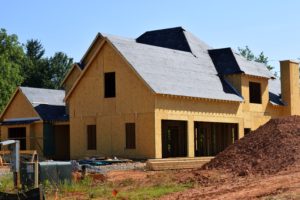What is the law if a home improvement contract or contractor fails to provide the services advertised or contracted for?
It’s springtime and lots of home improvements are being performed. It is important for the homeowner and contractor to have a written agreement in place that spells out all details of the project.
Both homeowner and contractor should review their contracts as home improvements could get costly if you don’t protect yourself. Homeowners hire contractors to do home improvements such as install decks, additions, roofing, siding, or to make other improvements on their home.
Specifically, when the project begins and when it should be completed are important concerns. Further, the contract should state when payments shall be made during the course of the project, i.e., 1/3, 1/3 and 1/3 at different stages of the contract. It is very important that your contractor be responsible for consulting with the town and obtaining the necessary permits for the project.
A town would normally require that a building inspector inspect the project after it is completed. A good contractor will be familiar with the building industry standards, Town and State regulations.
If the contractor is installing special roofing, siding, or other products, the homeowner will want to have in their contract language that states that they will install the product in accordance with the manufacturer’s product specification, in addition to the building industry standards. Normally, the product manufacturer has stricter requirements than town, state and building industry specifications.
There should also be further provisions in the contract, among others, specifying a warranty on labor and a warranty on the product installed. Obtaining at least a five (5) year warranty on labor is recommended.
What happens if the deck or addition is not constructed according to the contract and industry standards?
In a case involving repairs, a good contractor will put together a “punch list” of items to correct, which is not uncommon on any project. The homeowner and contractor do in fact have an obligation to work together. Pursuant to RSA 359-G Residential Construction Defects, before any action is commenced the homeowner must provide a notice of claim to contractor no more than 60 days from initiating an action stating the construction defects and the result of the defect.
Further, the homeowner is required to provide the contractor with any evidence of the nature and cause of the construction defect. Within 30 days of the notice of claim by the homeowner, the contractor should offer to settle the claim by monetary payment, make repairs, or a combination of both without inspection. The contractor can also propose to inspect the residence that is the subject of the claim or reject the claim.
If inspection is requested, the homeowner is required within 15 days to provide complete access to the residence to inspect the defects.
If the contractor is unreasonable and will not work with the homeowner, then the homeowner will be entitled to bring an action for breach of contract and/or related claims, and a consumer protection violation under RSA 358-A for deceptive conduct or practice in the trade. The claim may result in enhanced penalties 2-3 times the amount of the judgment, plus legal fees.
Communication between the parties is key!
On the other hand, having recently defended a successful construction defect case, a contractor was successful in proving to the court that the contractor went out of his way to make the repairs. The homeowner refused to allow the contractor back to schedule repairs, adding years of wear and tear to the damage, which the contractor was not responsible for. The contractor also gave the homeowner a five year warranty on labor which he was willing to honor through the trial in that action.
It would be practical to provide in a contract that states in the event of a dispute the parties agree to non-jury arbitration sponsored by the Better Business Bureau which has a quick and excellent forum for resolving such disputes if the claim is not excessive and punitive.
Contact counsel to learn your rights!
McGrath Law Firm recommends that before entering into any contract, you have the contract reviewed by one of our attorneys who are experienced with construction defect claims.
If a claim is made, that claim should be made through counsel. It may be very confusing for any party to handle a claim without an experienced attorney. McGrath Law Firm can help prepare your claim and presentation of your evidence at trial.
The legal team members at the McGrath Law Firm, founded by attorney Peter McGrath, will walk you through every step of the challenging legal matter to address your concerns and achieve your goals as efficiently as possible. From civil litigation, personal injury, Collaborative Law, Family Law, foreclosure prevention, criminal defense, the experienced attorneys at McGrath Law Firm have a successful track record in all aspects of Family Law. Call us to schedule your consultation at (603) 224-7111.

